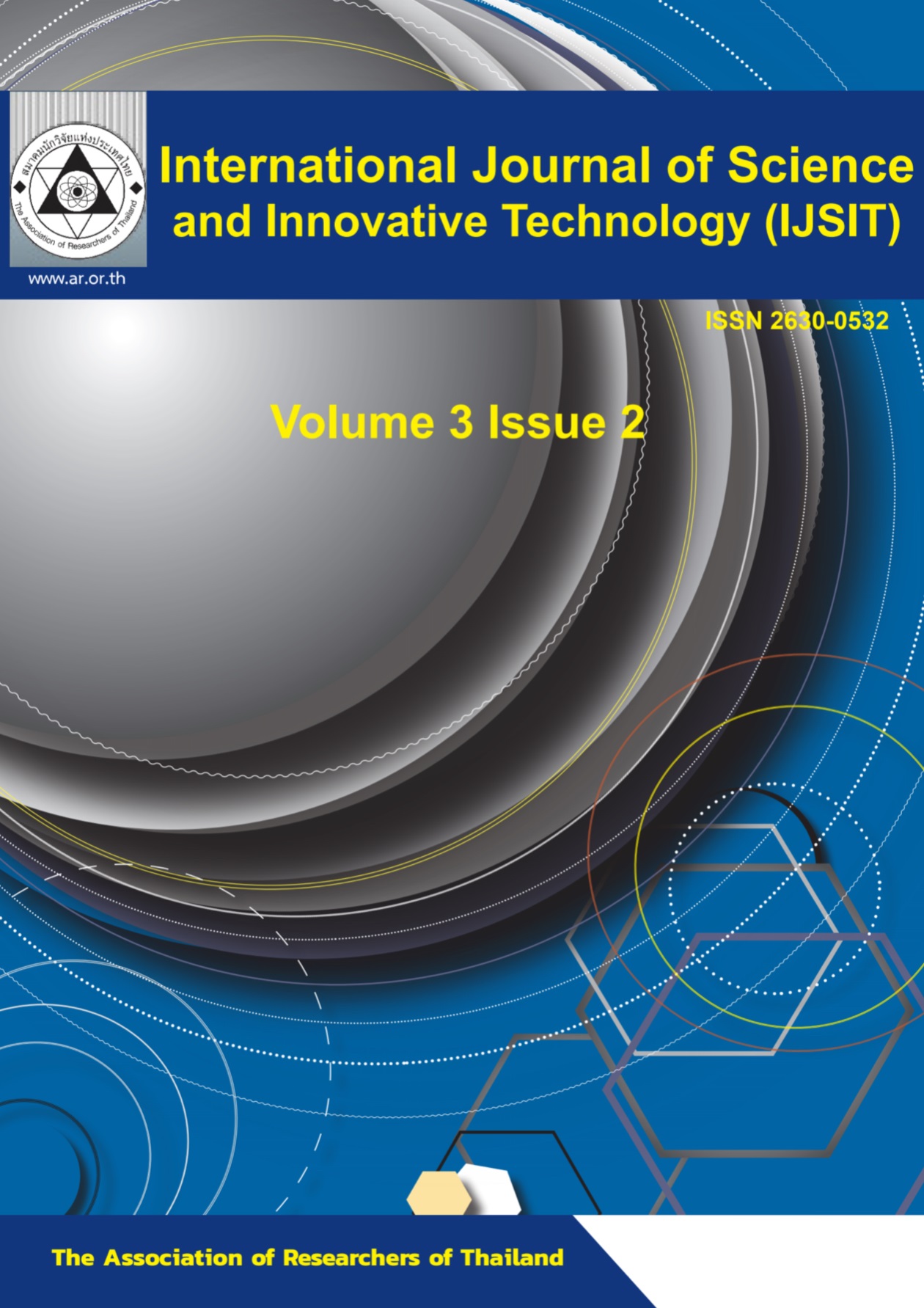The Development of Alternative Test Innovation for Learning Assessment
Main Article Content
Abstract
This research has developed a concept map as a tool for learning evaluation intended to analyze the size of the variance in each element, compare the coefficient of reference summary, compare the exactness when the pattern and number of examiners are different while developing training courses to apply concept mapping techniques for learning assessment and evaluation of training results. The sample in this study is divided into 2 groups: 4 examiners, and 48 students from Rajabhat Rajanagarindra University. The research tool used is an activity plan for the use of conceptmaps for learning outcome assessment, concept mapping evaluation form, quizzes, training assessment. The research results indicate that;
When the examination pattern is different even though the number of inspectors is the same, the Generalizability Coefficient then is statistically different with a significant level of 0.05. When the examination pattern is the same but the number of assessor is different, then the Generalizability Coefficient is statistically different at a significant level of 0.05. The score in all conditions has a high Concurrent Validity and statistically significant difference at 0.05. Training courses in applying the concept mapping techniques for learning measurement and evaluation are the most appropriate for all items. Evaluation results of training courses in applying concept mapping for measuring and evaluating learning outcomes are at a high level for all items except for the knowledge on the topic prior to training which is at a moderate level.
Article Details
References
Thatmanee Chukwan. (2005). A comparison in the quality of abstract notion in mathematic using mind map concepts evaluated using mind map with different scoring. Master of Education Thesis, Educational Measurement and Evaluation Program, Graduate School, Chulalongkorn University
Wiyada Rawangsuk. (2002). Assessment of the abstract notion using mind mapping. Thesis. Master of Education, Department of Educational Measurement and Evaluation, Graduate School, Chulalongkorn University.
Sirichai Kanjanawasee. (2007). New Test Theory. Bangkok: Chulalongkorn University Press.
Angkhana Kunnapadol. (2012). Development of mind map scoring for assessing student learning outcomes. Dissertation. Doctor of Philosophy, Department of Research and Statistics in Cognitive Science, College of Research Methodology and Cognitive Science, Burapha University.
Ausubel, D.P. (1968). Educational Psychology. New York.
Buldu, M. & Buldu, N. (2010). Concept mapping as a formative assessment in college classroom:
Measurement usefulness and student satisfaction. Procedia Social and Behavioral Sciences, 2(2010), 2099-2104.
McClure, J.R., Sonak, B., & Suen, H.K. (1999). Concept map assessment of classroom learning:
reliability, validity, and logistical practicality. Journal of Research in Science Teaching, 36(4), 475-492.
Novak, J.D. & Gowin, D.B. (1972). Learning How to Learn. New York: Cambridge University Press.
Sudweeks, R.R., Reeve, S., & Bradshaw, W.S. (2005). A Comparison of Generalizability Theory and Man-
Facet Rash Measurement in an Analysis of College Sophomore Writing. Assessment Writing. 9(3):239-261.


